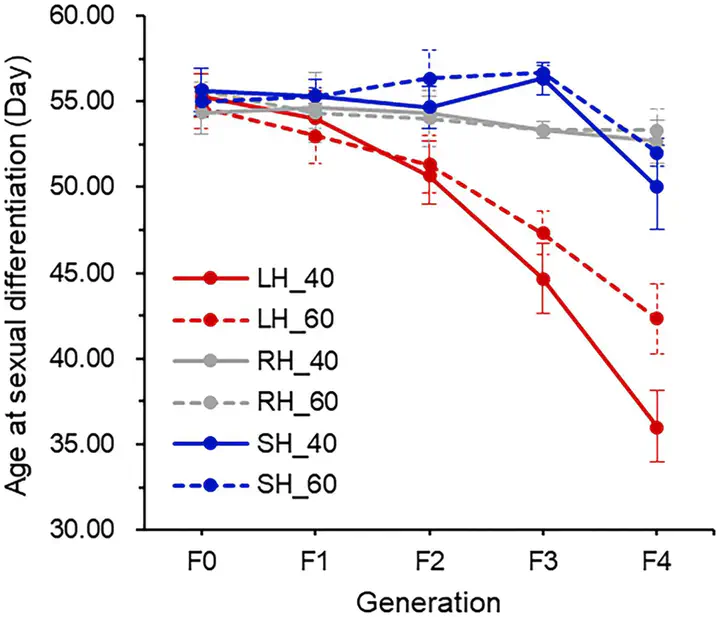 Image credit: Fisheries Research
Image credit: Fisheries Research
Abstract
Under long-term fishing pressure, the biological traits of many wild fish populations have changed. Such phenotypic changes include smaller in size and earlier age-at-maturation, strongly suggesting that fishing could induce rapid changes in the life-history traits of fish. However, whether extensive fishing will lead to genetic changes in fish, how they occur, and whether they are reversible still requires further research. In this study, we analyzed biological traits of marine medaka (Oryzias melastigma) subjected to 50% experimental harvest for 4 consecutive generations. This study adopted a factorial design with three size-selective harvesting strategies (large-, small-, and random-size selection) on groups either before or after maturation. We compared the growth, maturation, and early life stages of marine medaka for different harvesting strategies. The results showed that the mean lengths and mean weights in large-harvested populations significantly declined after 4 generations, whereas small-harvested populations did the opposite. Furthermore, selective harvesting of large individuals also led to earlier maturation, declining fecundity, declining hatching rate and increasing larval mortality. Importantly, compared to harvesting before maturation, harvesting after maturation could mitigate the effects of harvest on biological traits. This study provided experimental evidence for the impact of selective harvest on phenotypic evolution and contributed to the theoretical basis for sustainability in fisheries and fishery management.